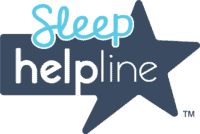Leading narcolepsy authors Claire Crisp, Henry Nicholls, and Julie Flygare discussed their books for the first time on Narcolepsy Nerd Alert: Narrating Narcolepsy. The panelists shared behind-the-scenes stories from their publication process and provided tips for aspiring writers.
The Narcolepsy Nerd Alert series invites listeners to dive deeper into specific topics relevant to living with narcolepsy. To explore more topics related to living with narcolepsy, visit our Narcolepsy Nerd Alert page and check out corresponding toolkits available to download for free.





